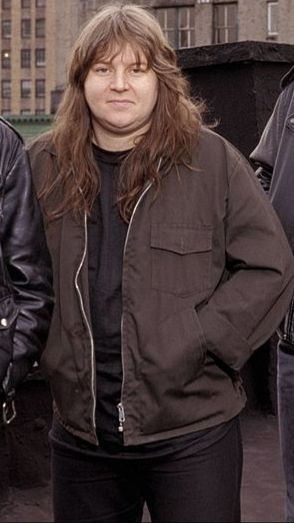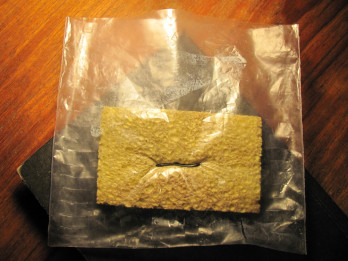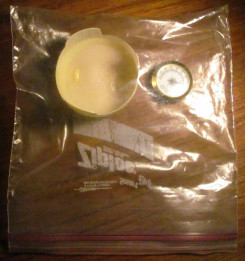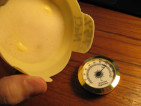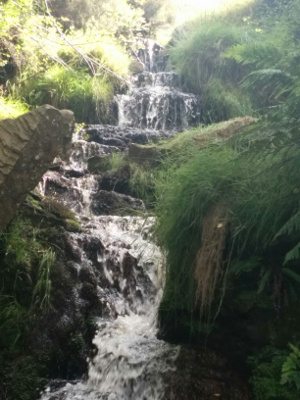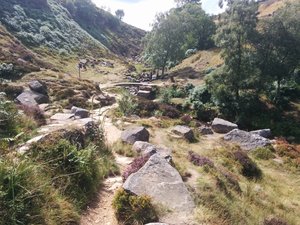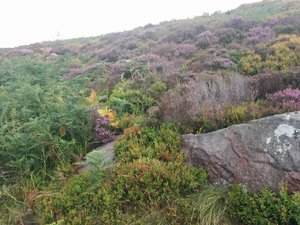Both have nearly perfect fidelity to the original piano scores, including adherence to original key. The Scriabin is in standard tuning throughout; whilst the Debussy begins simply drop-D, but employs several (quite affective!) en passant drops. The Scriabin includes a standard classical guitar score in addition to the usual tablature, something I do not intend to do often unless paid handsomely. (My rationale for preferring tablature for transcription work is discussed elsewhere.)
Also, the transcription that initiated this project, Liszt's Nuages Gris, has been refined and typeset. (There were two earlier transcriptions, an early version of aforementioned Scriabin Mazurka in 2016, completely rewritten this year; and, way back in 2008, Borodin's Serenade from the Petite Suite, performed but never written down; but the Liszt is what really got the ball rolling.)
updates on the Transcriptions etc. will be slow for a spell. There is email.
The deluxe box-set reissues of these early Voivod classics go for about £15 each (not sold here).
Unfortunately the principal composer, Denis (‘Piggy’) D’Amour, succumbed to cancer in 2005. Dan (‘Chewy’) Mongrain now fills Piggy’s shoes as composer and guitarist (though the original bassist, ‘Blacky’, who used to co-write with Piggy, was still in the band and writing up until The Wake—nice timing to be ejected). The new bassist ‘Rocky’ also brings something fresh and kindred. Anyhow, I think the next album will be more musically innovative.
Piggy's art was to avoid cliché (as opposed to sublimating or ridiculing it), without leaving you feeling like anything was avoided—if anything, you feel that you've heard something even more essential / canonical / natural than the familiar musical tropes. If that's a true impression of his music, then it's bound to be a rare gift. But probably a good way forward for Voivod is edgier experimentation, maybe in a slightly jazz direction (but still heavy)? ... I'm not sure. Incorporating D’Amour’s characteristic harmonies and progressions of course, but conquering new ground stylistically? I hope and trust there will be another album.
Why not reconcile with Jean-Yves, work up a production integrating a troupe of dancers, and take that on a cruise! It would be great fun, and your fans would love it.
I’ve uncovered and scanned one of my first compositions, Poem, WoO 1995b, a solo piano impression of a poem my grandmother wrote. (WoO is the standard abbreviation for “without opus number”.) It was written in autumn of 1995, and performed at a public concert of new music the next summer. I have no piano these days, but a guitar transcription feels possible.
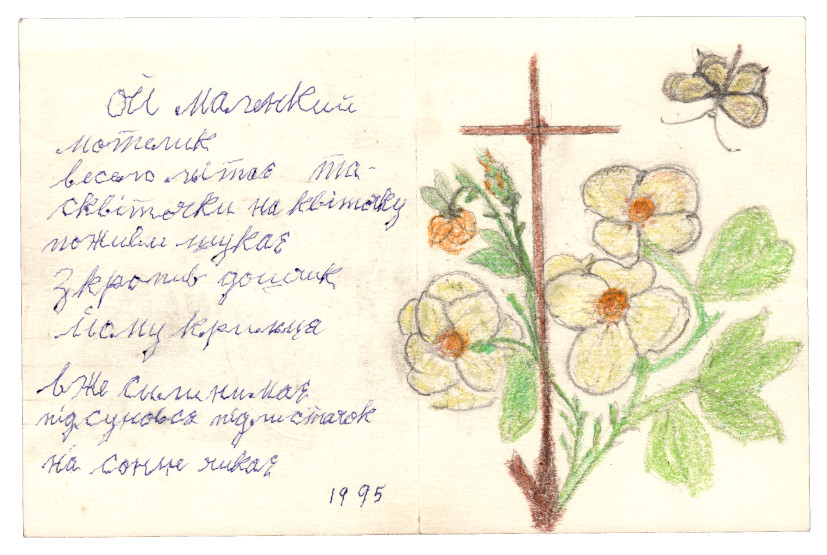
Apologies for the smudges, though I think most were there when she gave it to me. The music describes a butterfly’s adventures on a day of spirited weather, changeable breezes, rain and sun vying together in sunshower, and after, the peace, the patient fanning of the wings, the dripping leaves and bright, warm sunshine upon the dank earth, and a graceful tumbling flight into the glow. I did write down the meaning of the poem at the time (regrettably I have but little Ukrainian language, though my concern for Ukraine is rising): “A wee tiny butterfly is happily flying from one blossom to another, looking for nourishment. Rain comes and her wings get heavy. She crawls under a leaf and waits for the sun. When the sun shines she’ll fly again.” (I believe the original is intended in a gender-neutral way. In Ukrainian, which has grammatical gender, butterfly is always masculine, just as in French. I chose feminine pronouns since ‘her’ sounds prettier than ‘his’ or ‘its’. And we can imagine Baba’s spirit fluttering into the heavens.)
My grandmother was quite frail when she wrote the poem, as you can tell from her handwriting. She was a devout Christian, and the poem is probably meant allegorically. I am anti-Christian, in the sense that I positively dislike Abrahamic religion (and have been subjected to enough of it to make the judgement), but I never expressed that view to her or disrespected her beliefs—not to condemn anyone who has been less discreet!
And an extra treat for members, a scan of the first draft.It’s important to maintain luthier-built instruments at a good humidity (about 50% ± 5% RH), which can be quite different from ambient. In Canada the problem is worst in winter, when indoor RH can drop below 30% with the dry frozen air and the dessicating effect of heating systems. I made this sponge-in-open-bag bespoke humidifier (wet sponge, squeeze out excess water, dry hands and bag [for sake of luthier’s label], then stuff it between 3rd and 4th strings, dumping it into the lower bout). When it dries out, dampen it again. If it isn’t getting crusty-dry after about five days, the guitar probably doesn’t want more water, and the bag should be removed.
Now there are over a dozen complete Transcriptions published and available.
The Liszt Eglogue, long overdue, is now available for free download. As of this date, there are three free transcriptions, and six other complete transcriptions available for purchase.
I finally changed my guitar strings! This is news-worthy since I had been using the original, used strings on this used classical guitar, and had played thousands of hours on them. (I expect they only lasted this long because I use a lot of alternative tunings.) Today I noticed serious intonation problems on the fourth string, and my hand was forced...
There is a new free work on the Transcriptions page, namely the first section of the Andante sostenuto from Schubert’s D.960 B-flat sonata. While not a complete movement, this famous 42-measure incipit stands well on its own.
Work on the Transcriptions has recommenced in full earnest. I am committed to making at least one free complete transcription available before then end of this month. Most of the work is on the tablature typesetting software (which I’m writing). The Tablature Guide PDF is also now available, though it’s still work in progress...
Looks like this page was not maintained.
Anyhow, I made it to Haworth for the bicentenary! Here’s the “Brontë Waterfall”
and a couple other shots nearby, photographed on Emily’s birthday.
Today I created the poem pages, which present the original texts of the poems, offer a memorisation aid version (first characters of words, and punctuation), and link to locations of the holograph manuscripts, most (though not all) of which unfortunately require payment to a museum to actually see.
The poem pages can be accessed from the score-browser, the works page, and anywhere else
you see the ![]() icon.
icon.
I created an envelope icon ![]() and put it as mailto link in the footer.
and put it as mailto link in the footer.

